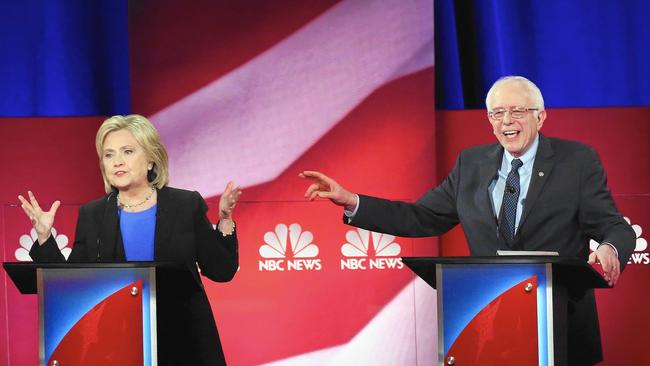What should the Dems do? Should Sanders fight until the convention? Should he graciously concede if he has no chance of winning the nomination? How and in what form should Clinton reach out to Sanders and his supporters? These are some of the most pressing issues of the day.
I raise these issues because recently some of the friends of The Jewish Pluralist have complained that there is a pro-Clinton bias in our coverage in the US elections. They’re correct, just as there has been a consistent anti-Netanyahu “bias” in our coverage of Israeli politics. The two American editors, Ayala and myself, both supported Clinton in the primaries. This is accidental. It just happened that both of us, independently, and without consultation, after carefully looking at the alternatives, decided to back Hillary Clinton in the primaries. I won’t speak for Ayala, I did so because, tactically, I believed and still believe that she has the best chance of winning in November.
Clinton is ahead in the delegate count at this point because she has won 13 million votes to Sanders 10 million. If Sanders did as well as Clinton with the core Democratic constituency of minorities he would be the presumptive Democratic nominee. If Sanders had won as many votes as Clinton overall, the superdelegates would be his for the taking. We have all had a lesson in the arcana of primary election rules, with 50 states, each with 2 sets of rules, to say nothing of primaries in US territories. It is a ridiculous system, but it is the system we have, and each side has done its best to master the rules. Sanders did well in states with caucuses, which is probably the least democratic system of all. Clinton did well in states with closed primaries, which aren’t much better, but in all my years in NYS, people on the left generally favored, because they feared that open primaries would dilute the progressive-liberal vote.
So where do we stand now? Clinton will almost certainly get the nomination. She will need to reach out to Sanders, and the Sanders wing of the party, in a serious way. And Sanders will need to reach back. We all need to turn down the decibels and the rancor. Sanders has every right to contest the nomination until the convention, but I fear that the Democratic Party would then be too divided and its wings too angry at each other to wage an effective campaign against Trump. There is perhaps a whiff of late stage Weimar in this, with moderates and leftists fighting among themselves with the far greater danger lurking offstage. The time for a United Front Against Trumpism is before he wins the election, not afterwards. If this perhaps raising the stakes a bit too high, 1968 and 1980 are perhaps more relevant precedents.
Let us not delude ourselves. Trump, who, it is increasingly clear will have a united GOP behind him, will be a vicious, wily, and tenacious campaigner. The anti-Trump forces will need to be united, and the only way you win American presidential elections is through broad coalitions. Although the situations are not quite analogous, one can see what happens, with Israel’s shift to the right as the latest example, when fecklessness and sectarianism prevent the formation of effective center-left coalitions. And we cannot allow someone who epitomizes the worst characteristics of Netanyahu and Lieberman, along with a few choice personality traits of his own, to take power in this country. We all need to dial back the anger and rancor, and keep focused on the utterly, transcendently important task ahead.
